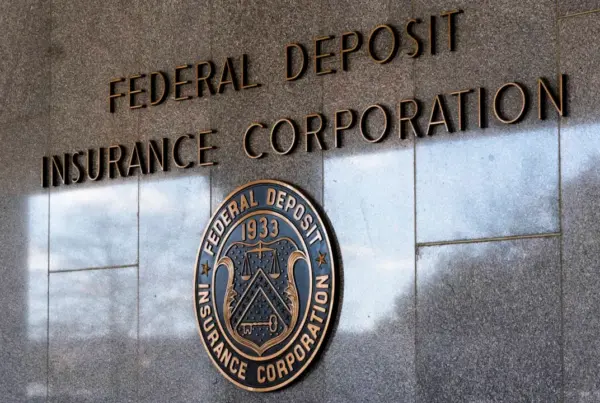On September 3, 2024, the Federal Deposit Insurance Corporation (FDIC) proposed significant amendments to its regulations concerning brokered deposits. This regulatory action aims to clarify the definition of a deposit broker, enhance the supervisory framework for banks, and address concerns regarding the stability of the banking system. The proposed changes are rooted in historical regulatory efforts to manage the risks associated with brokered deposits, particularly in light of recent market fluctuations and the evolving landscape of financial technology (fintech) companies.
The primary concern addressed by this regulatory update is the need for enhanced oversight of institutions that utilize brokered deposits, which can pose risks to the deposit insurance fund and overall financial stability. This memo outlines the key regulatory changes, their implications, and recommended actions for affected parties.
Key Regulatory Changes & Analysis
1. Expansion of the Definition of Deposit Broker
The proposed rule expands the definition of a deposit broker to include entities that facilitate the placement of deposits with banks, regardless of whether they receive a fee for their services.
- Comparison to Previous Rule: Previously, a deposit broker was defined narrowly, primarily focusing on those who received compensation for placing deposits. The new definition broadens this scope, potentially capturing more entities under regulatory oversight.
- Legal Implications: This change aligns with Section 29 of the Federal Deposit Insurance Act, which governs the treatment of deposit brokers and aims to mitigate risks associated with their activities.
2. Enhanced Reporting Requirements
Under the proposed rule, banks will face increased reporting obligations related to brokered deposits, including:
- Monthly Reporting: Banks must report the total amount of brokered deposits and the identity of the deposit brokers involved.
- Impact on Financial Institutions: This increased transparency is designed to provide regulators with better oversight of risks associated with brokered deposits and may require banks to invest in compliance infrastructure.
3. Restrictions on Brokered Deposits
The FDIC proposes to impose stricter limitations on the acceptance of brokered deposits by institutions deemed less than well-capitalized.
- Capital Requirements: Banks that do not meet specific capital thresholds may be prohibited from accepting brokered deposits, thereby reducing potential risks to the deposit insurance fund.
- Affected Parties: This change primarily impacts smaller banks and fintech companies that rely heavily on brokered deposits for liquidity.
Legal and Industry Implications
The proposed regulatory changes present several implications for compliance and operational practices within the banking sector:
- Compliance Burdens: Financial institutions may face increased costs associated with compliance, including the need for enhanced data management systems and reporting capabilities.
- Operational Adjustments: Banks will need to reassess their business models and strategies for acquiring deposits, particularly if they are classified as less than well-capitalized.
- Legal Risks: Institutions may encounter legal challenges related to the interpretation of the new definitions and reporting requirements. Recent enforcement actions highlight the FDIC’s commitment to scrutinizing brokered deposit activities.
Recommended Actions & Compliance Strategies
Affected banks and financial institutions should consider the following actions to ensure compliance with the proposed rule:
- Review and Update Internal Policies: Institutions should evaluate their current practices regarding brokered deposits and adjust policies to align with the new definitions and reporting requirements.
- Enhance Compliance Training: Staff training programs should be updated to reflect the regulatory changes, ensuring that employees understand the implications of the new rules.
- Engage in Public Comment: Stakeholders are encouraged to submit comments during the public comment period to express concerns or suggestions regarding the proposed rule. This engagement can influence the final regulatory framework.
- Key Deadlines: Public comments are due by November 21, 2024. The FDIC has not specified a final implementation date, but institutions should prepare for potential changes within the next regulatory cycle.
Conclusion & Next Steps
The FDIC’s proposed amendments to the brokered deposits rule represent a significant shift in regulatory oversight aimed at enhancing the stability of the banking system. Financial institutions must act swiftly to assess the implications of these changes and prepare for compliance.
As the rule progresses through the regulatory process, stakeholders should remain vigilant for further developments, including potential legal challenges or additional amendments. Engaging with the regulatory process through public comments will be crucial for affected parties to ensure their voices are heard.
In summary, the proposed rule presents both challenges and opportunities for banks and fintech companies, necessitating proactive measures to navigate the evolving regulatory landscape effectively.


